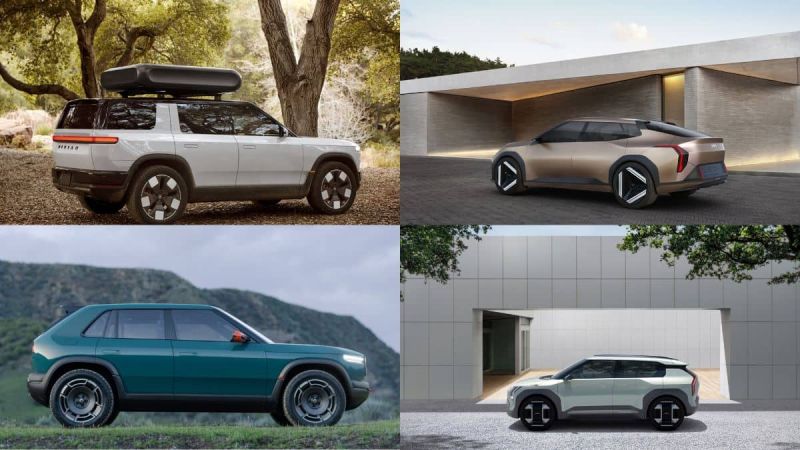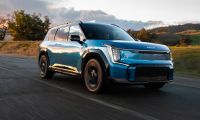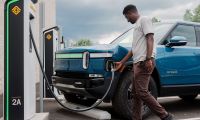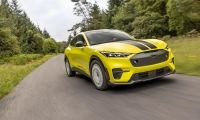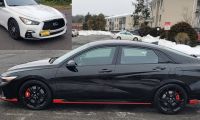As I make that assertion, some legacy brands already sell/have sold more affordable EV options, so clearly it isn’t impossible. However it is far from easy and brands like Chevrolet and Nissan, which were the first to market with lower priced EV (and PHEV) models, have shown us that even if legacy auto brands offer affordably priced EVs, it doesn’t mean they can be produced and sold in large enough numbers in order to be sustainable, profit wise.
The tipping point in our transition to EVs and plug-in hybrids (PHEVs) will come from the mass production of more affordable plug-in vehicles and the simultaneous development and refinement of the public charging experience for these same vehicles. In other words, plug-in vehicles in some mix of both EVs and PHEVs, have to achieve at least rough parity with gasoline powered vehicles at every price point while providing a competitive product for every model type. At the same time, the availability and ease of charging in public locations must be about as easy as gassing up is now, for everyone. The soonest this price parity is predicted to happen is about 2027, which happens to be within the timeframe that Rivian and Tesla aim to bring their most affordable vehicle options ever to market, en masse. Those vehicles are the Rivian R2 and R3 lines and the forthcoming Tesla “Redwood” model.
Legacy brands like Kia, Chevrolet and Nissan among others have announced models, or at least not quashed rumors of, new affordable plug-in pickup trucks, SUVs, sedans and crossovers. Undoubtedly, these legacy brands will bring some or many of these models to production, but unless they can sell hundreds of thousands of them annually, they will not lead. If they do not lead, their profits will be more constrained to the remaining fossil fuel lines they will continue to produce. That could spell big trouble for the legacy brands and may lead to consolidation or outright failure among one or more of these companies as they fail to “make the leap” to plug-ins.
Here’s what the legacy brands have to fix, in order to become the leaders:
- Legacy brands are not effectively enabling their customers (or potential customers) to utilize their fully electric products because they are not investing in charging infrastructure the way that startup competitors have, and will continue to. The establishment brands have made token efforts and many are elevating those efforts recently, but those efforts are potentially too little, too late, and that has to change.
- Legacy brands rely on fossil fuel vehicle sales to prop up their fledgling electric vehicle production lines, and no amount of hybrids can really change that, significantly. All auto companies are profit driven and electric vehicles can certainly generate a profit (as Tesla has certainly shown the world). It is just that, for legacy automakers so far they can’t generate enough profit to really commit to fully switching their production lines over at any point in the near future. That’s why we see Ford, and Chevy, and Nissan, among others talking a lot about the electric future, but then either walking things back or slowing things down, production wise. And it isn’t that these companies don’t want to make EVs per se, it is just that they struggle, desperately at times, to figure out how (in terms of designing and delivering compelling, usable and capable EVs). Some have done this a little better, the aforementioned Kia in particular, but that still doesn’t mean that any one legacy auto brand is going to lead the way in affordable EV sales.
- The legacy brands keep stalling or slow rolling their investment in supply chain and production capacity for EVs. Their thinking must be something like we’ll just increase our supply and production channels when we need to but the harsh reality is that the market moves fast and the years it takes to effectively do those things is likely to be too long, for some, or many of them to manage.
What do you think? Are you a skeptic of EVs and PHEVs in the first place? Are you versed in the market trends and what drives consumer habits? Do you think the legacy brands have it figured out already? Please leave your comments or questions below.
Images courtesy of Kia and Rivian.
Justin Hart has owned and driven electric vehicles for over 15 years, including a first generation Nissan LEAF, second generation Chevy Volt, Tesla Model 3, an electric bicycle and most recently a Kia Sorento PHEV. He is also an avid SUP rider, poet, photographer and wine lover. He enjoys taking long EV and PHEV road trips to beautiful and serene places with the people he loves. Follow Justin on Torque News Kia or X for regular electric and hybrid news coverage.
Set as google preferred source


